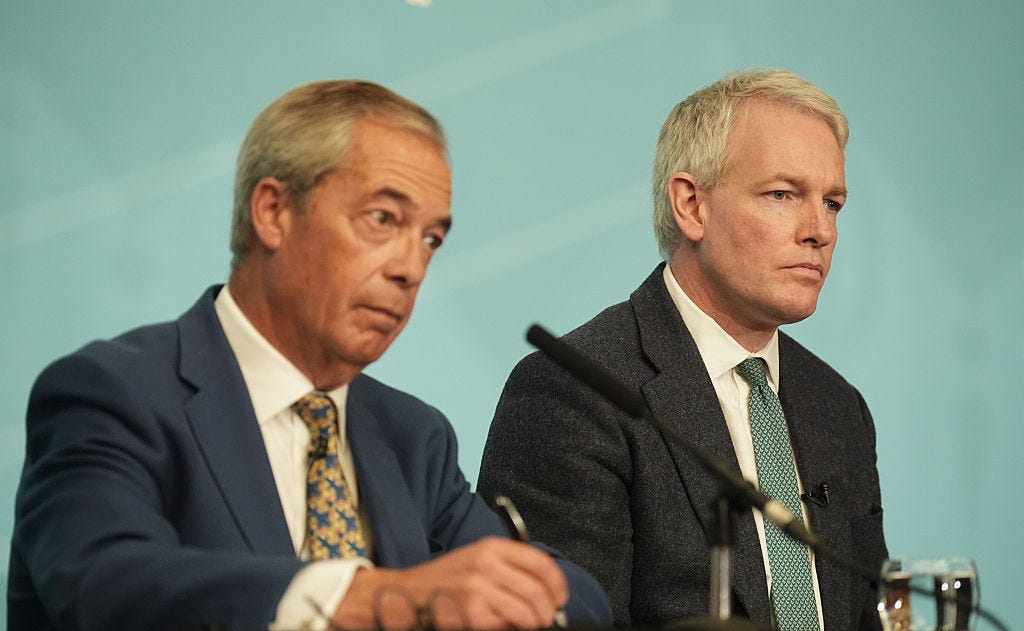Tory Shadow Work and Pensions Minister, Danny Kruger, defects to Reform (Photo by James Manning/PA Images via Getty Images)
The apparently terminal decline of the Conservative Party has been a long-running theme of this newsletter. After the 2022 local elections – before Boris Johnson resigned – I argued they were at risk of getting caught in a pincer: being too populist for the home counties but having the wrong economic policies for the ex-Labour territory they had won in 2019.
We saw the same pattern repeat in 2023, exacerbated by the Truss debacle, and by summer of that year it looked like they could suffer a wipeout in the 2024 general election, which was only narrowly avoided. Had they fallen just a couple of percentage points more the Liberal Democrats would now be the official opposition.
In April 2024, I suggested that a post-election Tory recovery was unlikely given how bad their polling was with under-50s, their profound institutional weakness, and the historically unprecedented challenge from Reform. One scenario I thought might happen was a version of French politics over the past decade – with Labour the equivalent of Emmanuel Macron’s party, leaking votes to the left while trying to hold off a challenge from the radical right, as the centre-right collapses.
We’re getting close to that. The Tories haven’t managed to poll beyond third place since April and the number of defections from them to Reform is rising to dangerous levels. Danny Kruger became the first shadow cabinet minister to switch last week. They are on track to come fourth or fifth in the Scottish and Welsh elections next May. Few think Kemi Badenoch will be in place beyond that. The debate now is whether whoever succeeds her will have a party left to lead.
Though Badenoch was undoubtedly a poor choice, the challenges she faces, and any successor would face, need to be seen in a global context. The centre-right is failing everywhere. The CDU is hanging on in Germany, but the AfD is leading in some polls now. Even Japan’s LDP, which has been in power for all but six of the last 70 years, is in trouble. Elsewhere the centre-right is either barely alive, in opposition, or in coalition with the radical right.
Whether the Tories can buck the trend is a critical question because if they fully disintegrated it would put Reform in a position where they could hit 40% and win a comfortable majority. It would also change the strategic calculations of other parties. So in the rest of the post I’ll look at why a rapid collapse is increasingly plausible, how it would play out, and how it would change the political landscape.
Keep reading with a 7-day free trial
Subscribe to Comment is Freed to keep reading this post and get 7 days of free access to the full post archives.


